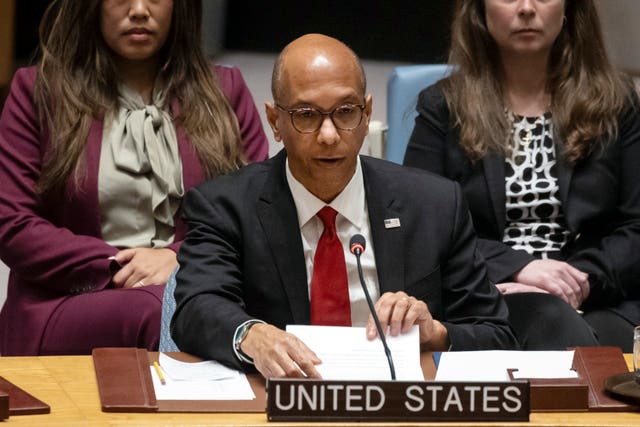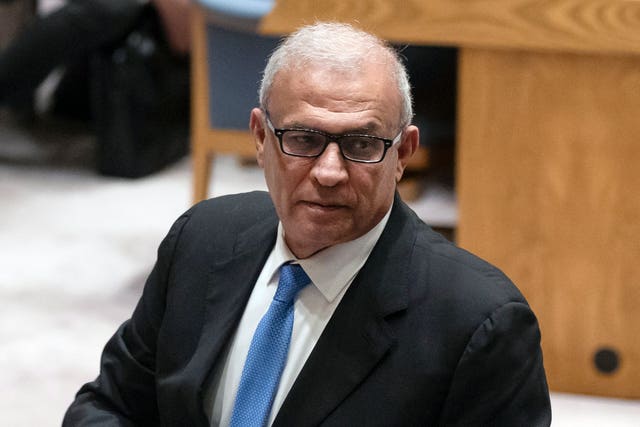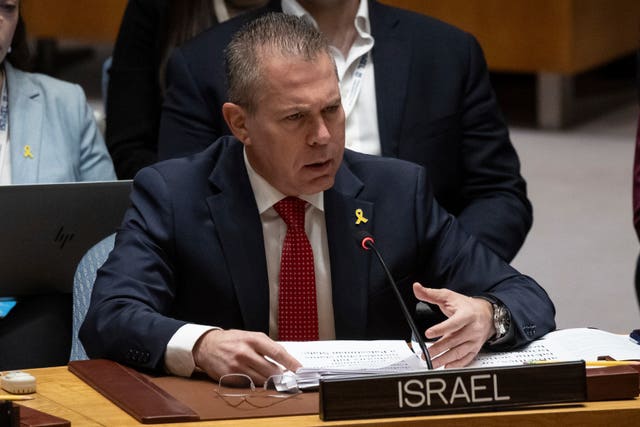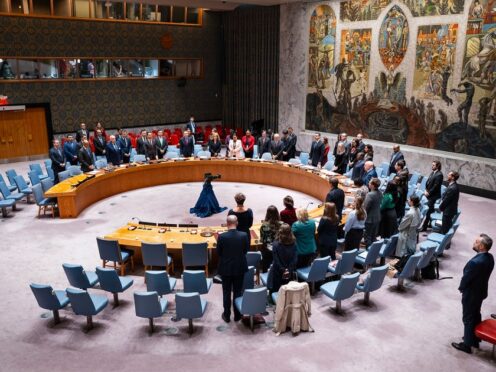The United States vetoed a widely backed UN resolution that would have paved the way for full United Nations membership for the state of Palestine.
The vote in the 15-member Security Council was 12 in favour, the United States opposed and two abstentions.
The resolution would have recommended that the 193-member General Assembly, where there are no vetoes, approve Palestine becoming the 194th member of the United Nations.
Some 140 countries have already recognised the state of Palestine, so its admission would have been approved.
This is the second Palestinian attempt for full membership and it comes as the war in Gaza has put the Israeli-Palestinian conflict at centre stage.
Before the vote, US deputy state department spokesman Vedant Patel said the United States has “been very clear consistently that premature actions in New York — even with the best intentions — will not achieve statehood for the Palestinian people”.
US deputy ambassador Robert Wood said that Palestinian membership “needs to be the outcome of the negotiation between Israel and the Palestinians”.
It “is something that would flow from the result of those negotiations”.

Palestinian President Mahmoud Abbas first delivered the Palestinian Authority’s application for UN membership to then-Secretary-General Ban Ki-moon in 2011.
That initial bid failed because the Palestinians didn’t get the required minimum support of nine of the Security Council’s 15 members.
The Palestinians then went to the General Assembly and by more than a two-thirds majority succeeded in having their status raised from a UN observer to a non-member observer state in November 2012.
That opened the door for the Palestinian territories to join UN and other international organisations, including the International Criminal Court.
The Palestinians revived their bid for UN membership in early April, backed by the 140 countries that have recognised Palestine as an independent state.
Ziad Abu Amr, special representative of the Palestinian president, said adopting the resolution would grant the Palestinian people hope “for a decent life within an independent state”.

He said such “hope has dissipated over the past years because of the intransigence of the Israeli government that has rejected this solution publicly and blatantly, especially following the destructive war against the Gaza Strip”.
He stressed to the Security Council that it won’t be an alternative “for serious negotiations that are time-bound to implement the two-state solution” and UN resolutions, and to resolve pending issues between Palestinians and Israelis.
Mr Amr asked the US and other countries opposed to its UN membership how that could damage prospects for peace or harm international peace and security when they already recognise Israel and approved its UN membership.
“To grant the state of Palestine full membership will be an important pillar to achieve peace in our region, because the Palestinian-Israeli conflict and its different dimensions now goes beyond the borders of Palestine and Israel and impacts other regions in the Middle East and around the world,” the Palestinian envoy said.

Israeli-Palestinian negotiations have been stalled for years, and Israel’s right-wing government is dominated by hard-liners who oppose Palestinian statehood.
Israeli UN ambassador Gilad Erdan called the resolution “disconnected to the reality on the ground” and warned that it “will cause only destruction for years to come and harm any chance for future dialogue”.
Six months after the October 7 attack on southern Israel by Hamas, which controlled Gaza, and the killing of 1,200 people in “the most brutal massacre of Jews since the Holocaust”, he accused the Security Council of seeking “to reward the perpetrators of these atrocities with statehood”.
Israel’s military offensive in response has killed more than 32,000 Palestinians, according to Gaza’s health ministry, and destroyed much of the territory, which speaker after speaker denounced on Thursday.
Mr Erdan listed the requirements for UN membership — accepting the obligations in the UN Charter and especially being a “peace-loving” state.
“What a joke,” he said. “Does anyone doubt that the Palestinians failed to meet these criteria? Did anyone hear any Palestinian leader even condemn the massacre of our children?”
